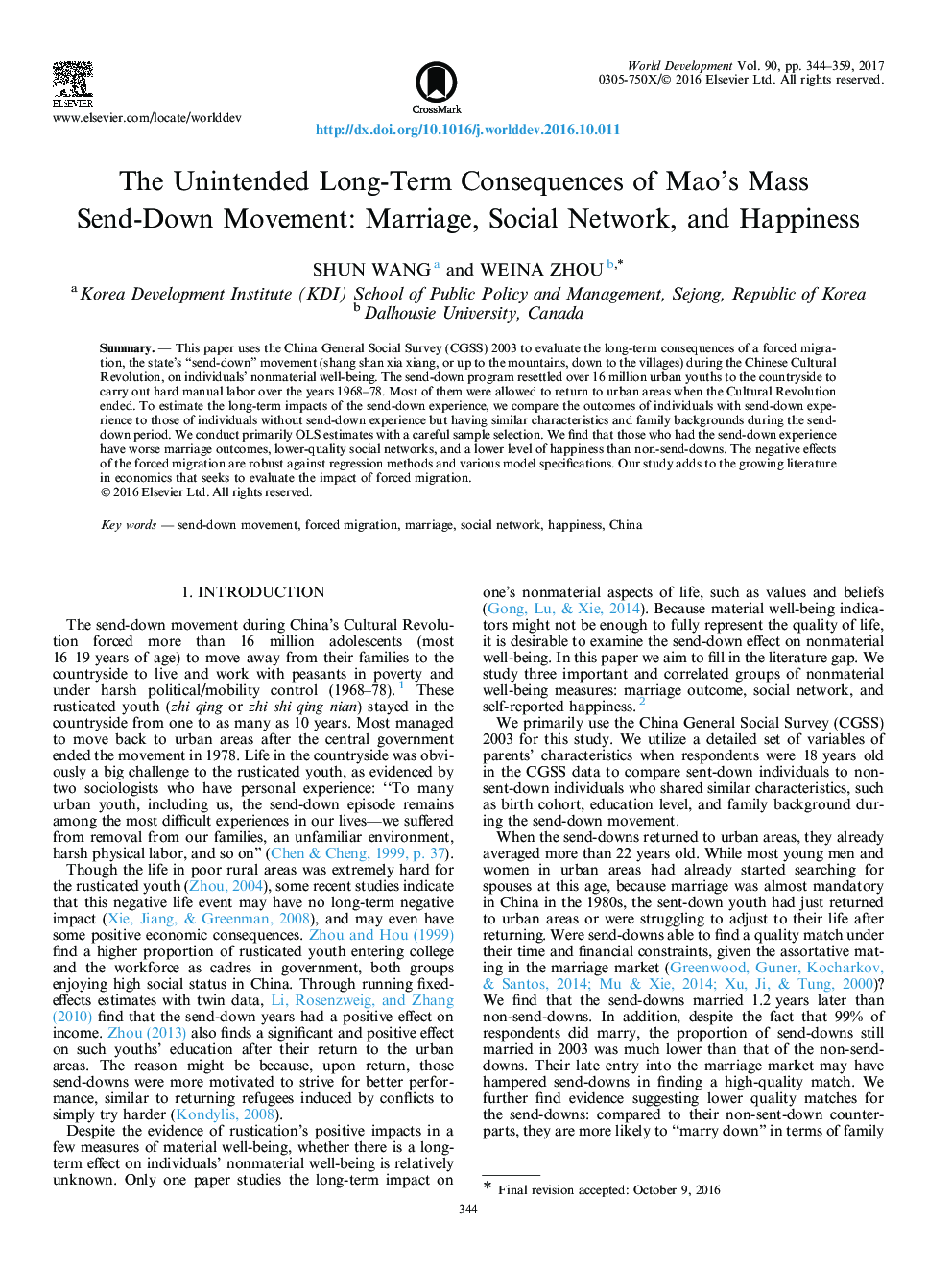| Article ID | Journal | Published Year | Pages | File Type |
|---|---|---|---|---|
| 5105259 | World Development | 2017 | 16 Pages |
Abstract
This paper uses the China General Social Survey (CGSS) 2003 to evaluate the long-term consequences of a forced migration, the state's “send-down” movement (shang shan xia xiang, or up to the mountains, down to the villages) during the Chinese Cultural Revolution, on individuals' nonmaterial well-being. The send-down program resettled over 16 million urban youths to the countryside to carry out hard manual labor over the years 1968-78. Most of them were allowed to return to urban areas when the Cultural Revolution ended. To estimate the long-term impacts of the send-down experience, we compare the outcomes of individuals with send-down experience to those of individuals without send-down experience but having similar characteristics and family backgrounds during the send-down period. We conduct primarily OLS estimates with a careful sample selection. We find that those who had the send-down experience have worse marriage outcomes, lower-quality social networks, and a lower level of happiness than non-send-downs. The negative effects of the forced migration are robust against regression methods and various model specifications. Our study adds to the growing literature in economics that seeks to evaluate the impact of forced migration.
Related Topics
Social Sciences and Humanities
Economics, Econometrics and Finance
Economics and Econometrics
Authors
Shun Wang, Weina Zhou,
